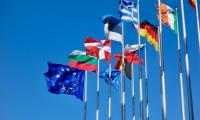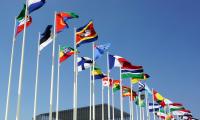EU about to miss golden opportunity to spur global climate action
The European Parliament elections are behind us, and as a new policy term kicks off, Europe's policymakers face tough challenges. Key decisions on 2035 and 2040 climate targets will shape future generations and form the basis of the EU's new national climate pledge (NDC) to the UN, potentially boosting global ambitions. First-movers on NDCs can set the bar for the rest of the world. By unveiling its own plan as early as possible, the EU has the chance to catalyse a new wave of ambitious NDCs by pressuring other major emitters such as the US and China to commit to high ambitions.
However, progress on the adoption of European post-2030 climate targets is slow. EU governments need to take firm stances on future climate targets, starting at the European Council meeting on 27-28 June.
Pivotal moment to increase global climate efforts
We currently find ourselves in the most decisive period of this critical decade for climate action and as COP30 in Brazil in 2025 approaches, stakes are high. By February 2025 the latest, all countries are expected to submit new national climate pledges (NDCs) to the UN, 9-12 months ahead of COP30. This is a make-or-break moment for aligning global climate efforts with the Paris Agreement and keeping a climate-safe scenario within reach.
The next generation of NDCs must entail 2035 climate targets and draw on insights from the Global Stocktake concluded at COP28, which revealed the world is far off track in meeting the Paris Agreement. This makes the next NDCs a crucial juncture in global climate efforts.
No mention of a 2035 target
The European Commission’s recommendation for a 90% reduction target for 2040 failed to include a target for 2035. According to the Commission, a 2035 target will be derived only once the 2040 target is agreed. However, the proposal to include the 2040 target in the European Climate Law under the next Commission will only be published in the first quarter of 2025 at the earliest.
At the latest Environment Council on June 17, European governments acknowledged the overall need for an early agreement on an ambitious 2040 target. However, the 2035 target and the agreed 9-12 month deadline for submitting the EU’s new NDC was not a part of the policy debate.
The prospect of waiting for the adoption of a 2040 target after a law proposal by the new European Commission in 2025 casts serious doubt on the EU's ability and commitment to adhere to the agreed timeline for submitting NDCs. Such delay would send troubling signals that the EU is not serious about its commitments to the Paris Agreement and reduces pressure on other emitters to adopt timely and ambitious NDCs.
EU heads of state must ensure timely and ambitious NDC
To avoid this, Member States should work for an early adoption by reaching consensus on ambitious targets for 2040 and 2035 among EU heads of state and government. Ideally, targets are discussed on the European Council meeting in June and, at the latest, adopted during European Council meetings in October or December to ensure a timely EU NDC.
Despite a letter from 11 Member States, including Germany and France, calling for an ambitious 2040 target, few have adopted final positions on the 2040 climate target, making agreement at the June meeting unlikely. Here, EU leaders will adopt the Strategic Agenda for 2024-2029. Amidst a politically charged year with elections and crises within and outside Europe, this is an ideal opportunity to ensure adoption of 1.5°C-aligned climate targets and establish a strong vision for the EU as a global climate leader as part of the Strategic Agenda. This will also contribute to European industrial competitiveness and strengthen the EU’s resilience.
Other large countries are expected to present NDCs during 2024 or early next year, leaving the EU as the odd one out if it fails to commit to its own 2035 climate target this year. This would seriously undermine its climate leadership and represent a missed opportunity to pressure major emitters ahead of COP30 and increase global efforts.
In past international climate talks, the EU has been a key player in ensuring successful outcomes. Amid geopolitical turmoil, successful COP30 cooperation is vital for the Paris Agreement’s future. Now is the time to boost the EU’s climate diplomacy efforts and reaffirm its role as a global climate leader. Adopting a timely NDC is a crucial step.





